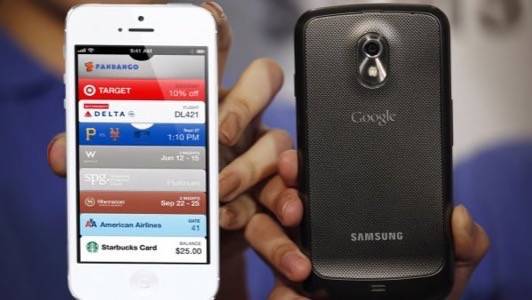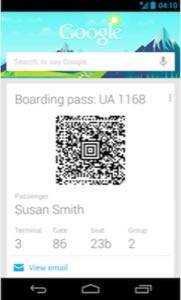
This post has been corrected.
Wednesday’s update to Google Now adds functionality similar to the new Passbook in iOS, and this is a key point of competition. You may not use them yet, but these scannable passes are going to be everywhere, and you’re going to want the phone that handles them the best.
Mobile platforms compete on convenience. Now that Android and iOS are both highly refined, the choice between them comes down to which one fits more seamlessly into your everyday life. Passbook, which came out with iOS 6 this year, was the first feature of iOS that stepped into the realm of check-in and check-out at real-world businesses, a transaction that’s becoming more digitized all the time.

Many Android phones already had near-field communication (NFC) built in, which can handle that task among others. Apple never bothered with a hardware solution for that. It seems to think that if tickets, coupons, vouchers and such can be securely delivered to the phone, but it’s all software, it no longer matters what phone a person is using. Google seems to be coming around to that idea.
The new Google Now feature has barcodes only for flights (starting with United Airlines), but it’s a natural place to put passes of all kinds.
The really cool part about Google Now’s feature is that it can use your phone’s location to automatically pull up the boarding pass when you’re at the airport. Passbook can do that, too. But Google Now is more proactive about reminding users of things like appointments and alerts than iOS is, so it’s more expected behavior on Android.
This reminds me of the geofencing in Square Wallet, which blows my mind every time. Square has built its app to wake up when you approach the location of a business you frequent, so your Square tab opens automatically and closes when you leave. You don’t even have to take your phone out of your pocket. That is convenience.
Beyond passes, Google would love for us to pay for things directly with Google Wallet. Square would like us to pay with Square Wallet. Apple hasn’t yet turned its huge collection of credit cards into a real-world payment system, but I’m convinced it will.
The smartphone is becoming an increasingly critical ticket to real-world experiences. Whether one platform figures it out and locks it up, or we end up using different services for different things, the most convenient mobile passes and payments will win.
Correction: This article originally stated that Passbook was not location-aware, but it is, in fact. Thanks to readers for the correction.
Lead image courtesy of Shutterstock.

















